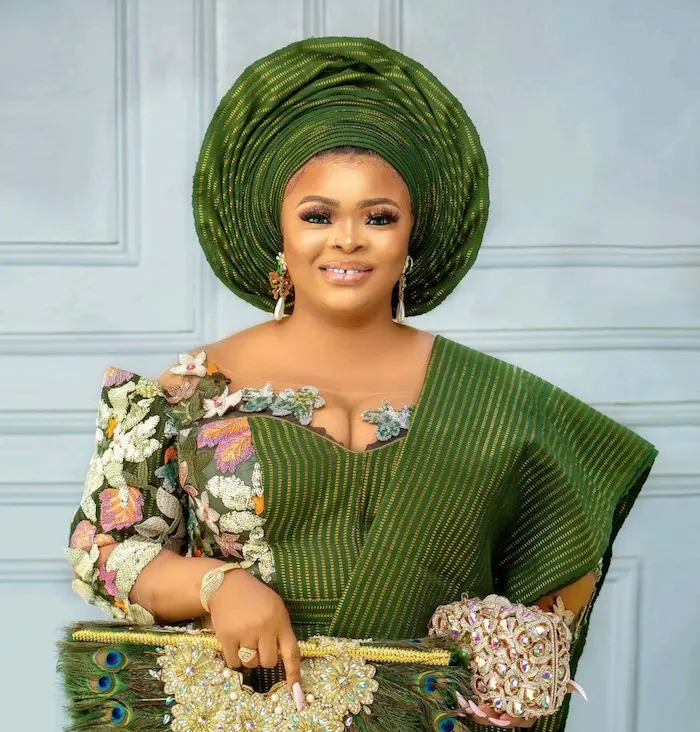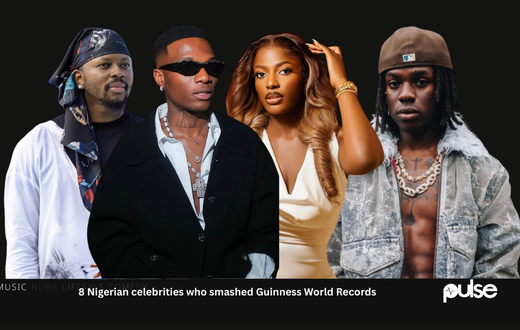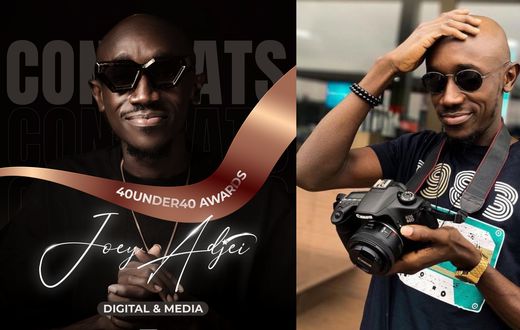Popular Nigerian TikTok content creator, Olaoluwa Segun, recently opened up about his harrowing experience in detention after his name became linked to a controversial celebrity scandal involving Nollywood actress Dayo Amusa. The saga, which began with accusations of false claims about celebrities’ health status, quickly became a focal point for conversations online—both in Nigeria and across West Africa—about social media responsibility, the power of public opinion, and the mental toll viral controversy can have on individuals.
Nollywood Celebrity Named in Online List Sparks Major Controversy
In July 2025, Segun published a TikTok video that went viral for all the wrong reasons. He named several Nigerian celebrities as being HIV-positive, a claim that quickly drew swift backlash. Among the figures named was Dayo Amusa, a respected actress and producer in the Nigerian film industry. Amusa, in response, categorically denied these allegations, referencing an old social media post she made in 2019 meant to raise HIV awareness among her followers. She clarified that her statements then were solely to educate and fight stigma—not to disclose her personal health history.
Legal Action and Social Media Backlash
Following wide circulation of the unverified list, Amusa took legal steps. She announced that she would pursue justice against those perpetuating falsehoods about her health, warning she wanted to make an “example” out of Segun to deter future malicious gossip. Many Nollywood insiders and health advocates applauded Amusa’s stance, calling for greater accountability on platforms like TikTok and X (formerly Twitter), where privacy and reputational harm are constant risks for public figures.
Segun’s Ordeal in Police Custody
On Tuesday, Segun bravely shared his firsthand account of being detained by authorities at the Lagos State Criminal Investigation Department (CID), popularly referred to as “Panti.” According to Segun, after receiving a police invite in relation to Amusa’s petition, he appeared as requested, only to find himself behind bars for two days. He described his detention as a deeply traumatic period—second only in pain to the loss of his mother.
He recounted, “When I entered the cell, one of the inmates who looked quite rough ordered me to prostrate and greet everyone. There was no chair or bed, only the bare, cold tiles.” Segun painted a vivid picture of a harsh environment, sharing details about poor sanitation and lack of privacy: “The cell had four pit latrines and just one open window, so mosquitoes kept pouring in. There was no door between the sleeping area and the latrine—the smell was almost unbearable, like sleeping in a public toilet.”
The Reality of Nigeria’s Detention Facilities
Legal and human rights experts have often raised concerns about the state of Nigeria’s holding cells. Overcrowding, poor hygiene, and a lack of basic amenities are persistent issues. Segun’s experience—approximately 60 people sharing limited space—highlights a broader challenge in Nigeria’s criminal justice system, where pretrial processing can expose detainees to severe physical and psychological stress.
- General lack of privacy: Prisoners have minimal separation between sleeping and toilet facilities.
- Basic needs often unmet: No beds, poor ventilation, and insufficient access to clean water.
- High risk of exposure: Overcrowding increases the risk of disease transmission—including the types of illnesses often stigmatized on social media.
According to Segun, his situation improved slightly when one cell leader, a TikTok follower, recognized him and ensured he was spared some of the initiation “treatment” new inmates typically face. The comfort, however, was marginal with the conditions he described, and he was quick to add that without interference from Amusa herself, his stay could have lasted longer.
Dayo Amusa’s Reaction and Online Community Responses
Amusa’s willingness to forgive Segun was met with widespread conversation across social media and mainstream news. Some viewers sympathized with Segun, pointing to the dangers of excessive online shaming and the need for young content creators to be educated about responsible digital behavior. Others contended that fake news should carry consequences to discourage reckless accusations.
A legal analyst based in Lagos, Barrister Ifeanyi Umeh, commented, “This case is a textbook example of how misinformation on social media can escalate into real-world harm. There is a need for continued public sensitization and stricter enforcement against malicious online claims.”
Navigating the Blurry Lines of Social Media Fame
In West Africa and globally, digital platforms have given rise to a new class of influencers and content creators with unparalleled reach. However, these platforms also present risks around rumor-mongering and the spread of misinformation—especially relating to sensitive topics such as health status.
- Freedom of expression and responsibility: While creative content fuels engagement, accuracy and ethics must not be disregarded.
- Reputational risks: A viral claim can impact careers, mental health, and livelihoods, especially in industries like Nollywood with intense public scrutiny.
- Legal implications: Laws on libel, defamation, and privacy rights apply to digital content as they do to traditional journalism.
Lessons for Nigerian Creators and the Public
Segun’s situation is a cautionary tale for rising influencers in Nigeria, Ghana, and across Africa. The quick escalation from viral video to police cell demonstrates how the digital world bleeds into everyday lives—with sometimes severe consequences. For the wider public, it also stresses the need to verify information, avoid spreading unconfirmed rumours, and respect the personal boundaries of public figures.
Media lawyers advise creators to always fact-check, consult legal counsel when in doubt, and consider the psychological effects of public backlash before posting controversial content. As digital culture continues to evolve, balancing viral engagement with responsibility remains a growing conversation—one that spans not just Nigeria, but global communities everywhere.
What’s Next for Social Media Accountability in Nigeria?
With cases like Segun’s making headlines, Nigerian authorities, tech industry stakeholders, and advocacy groups are calling for:
- Enhanced digital literacy and public education on responsible social media use.
- Clearer reporting mechanisms for fake news and online harassment.
- Support networks for both victims and accused parties to access fair representation and mental health care.
The dialogue continues around how best to encourage free expression while protecting individuals from harm—a challenge in a region where social media shapes reputations and opportunities, for good or ill.
What do you think about the impact of viral rumors on social media? Have you or someone you know ever faced a similar challenge? Share your thoughts in the comments below and let’s keep the conversation going!
Have a story or perspective about social media, celebrity culture, or digital life in West Africa? We want to hear from you! Send your news tip, opinion piece, or personal account to story@nowahalazone.com—you might see your experience featured on our platform.
Need support or want to join the discussion? Reach us at support@nowahalazone.com.
Follow us on Facebook, X (Twitter), and Instagram to stay up to date with trending stories from Naija and across Africa!










